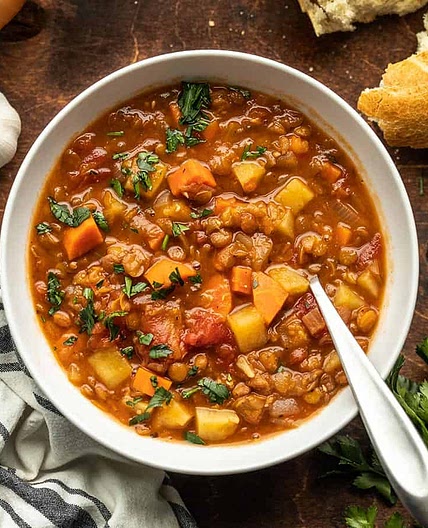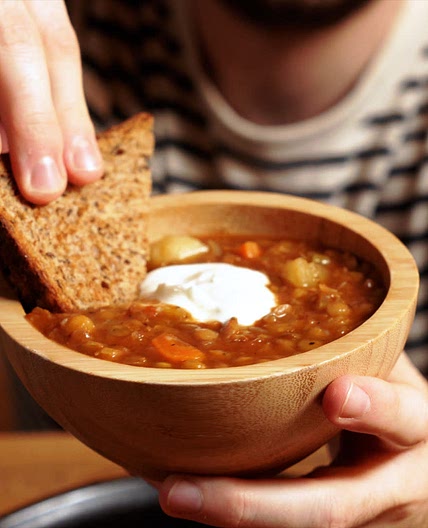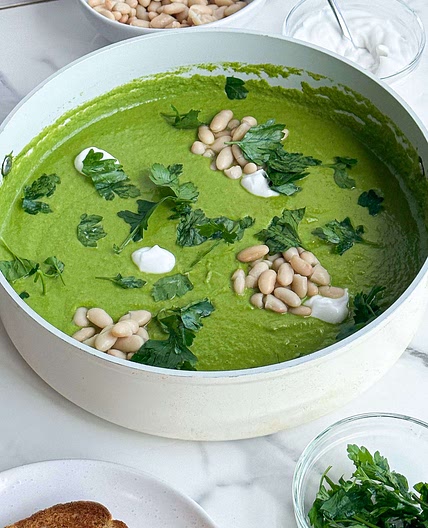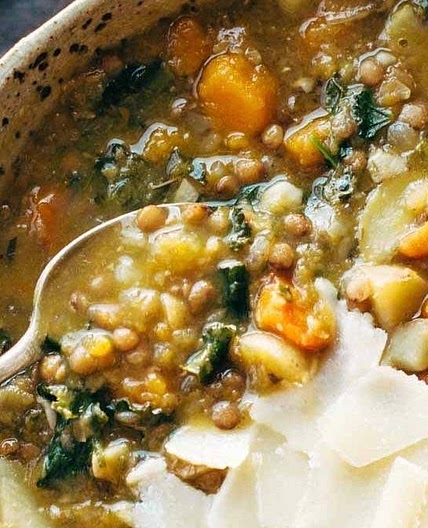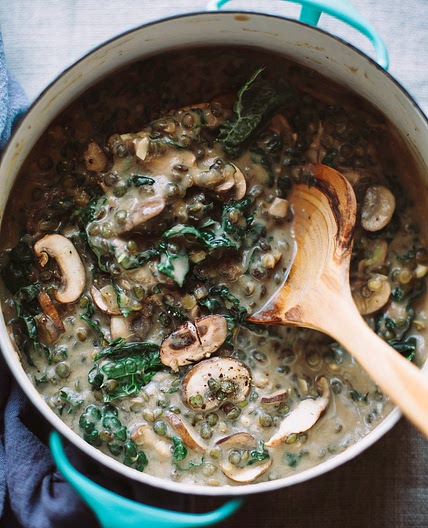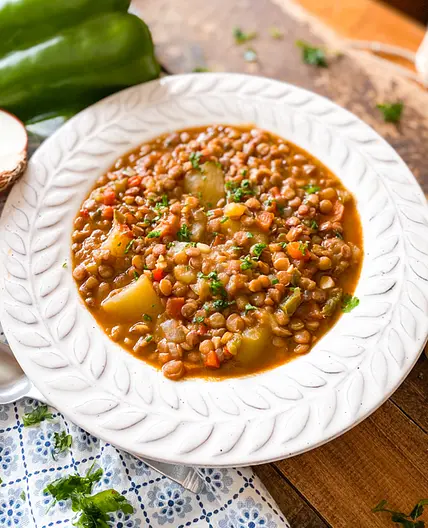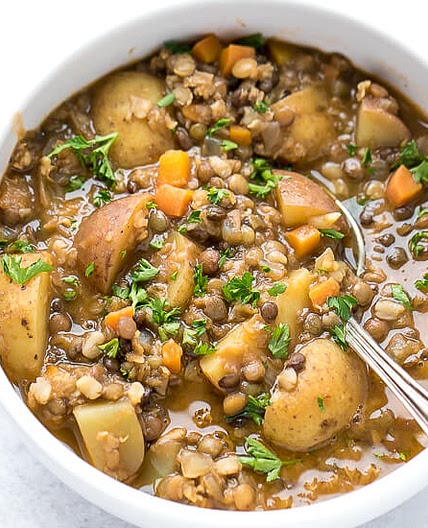Vegetable Soup: A Nourishing and Delicious One-Pot Wonder
You can’t go wrong with a hearty vegetable soup, whether you need a quick dinner or meal prep. Learn how to make vegetable soup taste even better and explore its numerous health benefits.
Photo by Gianluca Gerardi on Unsplash
Vegetable soup is a comforting and versatile meal that has been known for decades as the perfect sickness cure. Why? Vegetable soup offers a plethora of health benefits. Packed with nutrient-rich vegetables, aromatic herbs, and savory broth, it’s not just delicious but also a great way to ensure you eat some more veggies – and fight off those winter colds and flu.
Health Benefits of Vegetable Soup
Photo by Stacey Doyle on Unsplash
Vegetable soup is a powerhouse of a dish that provides a wide range of vitamins, minerals, and dietary fiber. Some of the key health benefits of vegetable soup include:
- Nutrient powerhouse: Vegetable soup is loaded with vitamins A, C, and K, along with essential minerals like potassium and folate. These nutrients are important for maintaining a healthy immune system, promoting cell function, and supporting overall well-being.
- Weight management: Vegetable soup is low in calories and high in fiber, making it an excellent choice for those aiming to manage their weight. The high fiber content helps you feel full and satisfied while keeping calorie intake in check. Plus, it’s a good option if you’re looking for low calorie foods to fill you up, thanks to how much volume you get for so few calories.
- Boosts immune system: Vegetables are a great source of antioxidants, which help protect your cells from damage caused by harmful free radicals. These antioxidants contribute to a stronger immune system and lower the risk of chronic diseases.
- Hydration: Vegetable soup contains a significant amount of water, which helps keep you hydrated. Proper hydration is essential for optimal bodily functions and supports healthy digestion.
How to Make Delicious Vegetable Soup
Photo by Pichara Bann on Unsplash
While vegetable soup is a great lunch or a light dinner idea and delicious on its own, there are several ways to enhance its flavor and make it even more enjoyable. Here are some tips:
- Building flavor with aromatics: Start by sautéing aromatic ingredients like onions, garlic, and celery in a little olive oil or butter. These ingredients add depth and complexity to the soup’s flavor profile.
- Herbs and spices: Experiment with herbs and spices to add a burst of flavor. Fresh herbs like thyme, rosemary, or basil can elevate the taste, while spices like cumin, paprika, or turmeric can bring warmth and complexity.
- Seasoning: Don’t forget to season your vegetable soup with salt and pepper to taste. Proper seasoning brings out the natural flavors of the vegetables and makes the soup more satisfying.
- Enhancing texture and depth: Add ingredients with different textures to create a more interesting soup. Consider including diced potatoes, tender beans, or grains like quinoa or barley to add heartiness and depth to the dish.
Customizing Your Vegetable Soup
One of the best things about vegetable soup is that you can truly make it your own based on your preferences and the ingredients you have on hand. Here are some ways to personalize your vegetable soup:
- Vegetable variety: Use a mix of colorful vegetables such as carrots, bell peppers, zucchini, broccoli, or spinach. This ensures a diverse range of nutrients and adds visual appeal to your soup.
- Protein-rich ingredients: Boost the protein content of your vegetable soup by adding legumes like lentils, chickpeas, or kidney beans. You can also include tofu, seitan, or diced chicken if desired.
- Different broths and bases: Experiment with different types of broths or bases to vary the flavor. Vegetable broth, chicken broth, or even coconut milk can lend unique tastes to your soup.
- Grains or legumes: To make your vegetable soup more filling, consider adding cooked grains like rice or quinoa, or cooked legumes like lentils or split peas. These additions add texture and nutritional value.
Tips for Cooking Vegetable Soup
To ensure your vegetable soup turns out delicious every time, consider the following tips:
- Prepare vegetables properly: Wash and chop the vegetables uniformly for even cooking. If using leafy greens, add them towards the end of the cooking process to retain their vibrant color and nutritional value.
- Optimal cooking techniques: Simmering the soup over low heat allows the flavors to meld together. Be mindful not to overcook the vegetables to maintain their texture and nutritional integrity.
- Balance flavors and consistency: Taste the soup as it cooks and adjust the seasoning as needed. If the soup seems too thick, add more broth or water to achieve the desired consistency.
- Storing and reheating: Vegetable soup can be stored in airtight containers in the refrigerator for up to five days. When reheating, add a splash of water or broth to maintain its consistency.
FAQs
How healthy is vegetable soup?
Vegetable soup is highly nutritious as it provides a wide range of vitamins, minerals, and dietary fiber. It’s low in calories and fat, making it a great choice for those aiming to maintain a healthy weight. The abundance of vegetables offers antioxidant properties, supports digestion, and boosts immune function. By using wholesome ingredients and minimizing sodium, vegetable soup can be a healthy addition to your diet.
How do you make vegetable soup taste better?
To enhance the flavor of vegetable soup, consider using aromatic ingredients like onions, garlic, and herbs such as thyme or rosemary. Adding spices like cumin or paprika can add depth and warmth. Don’t forget to season with salt and pepper to taste. You can also boost the flavor by incorporating umami-rich ingredients like mushrooms or tamari sauce. Lastly, allowing the soup to simmer for longer periods can intensify the flavors.






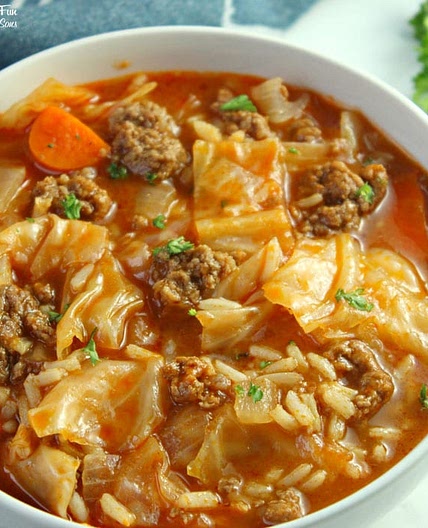











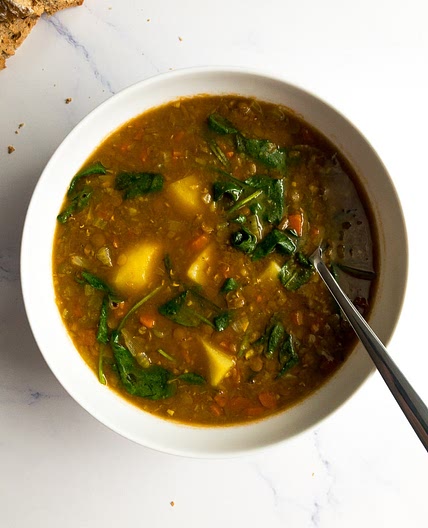




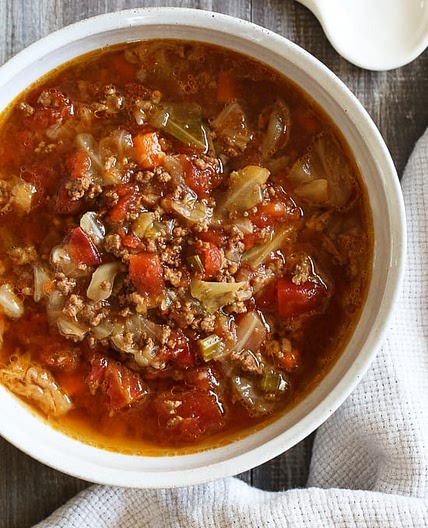


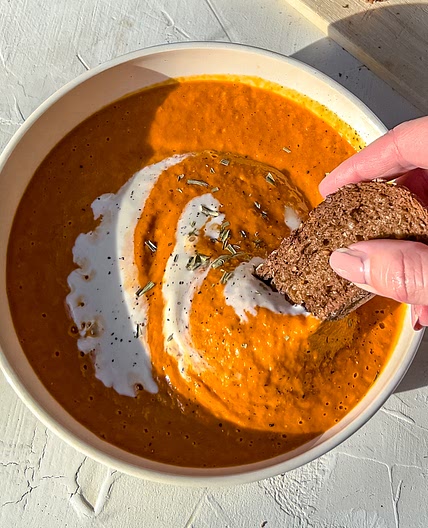




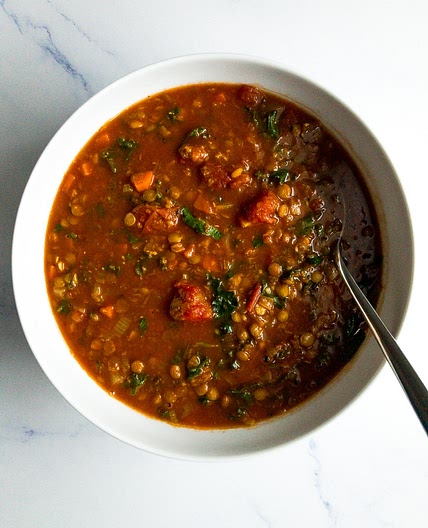









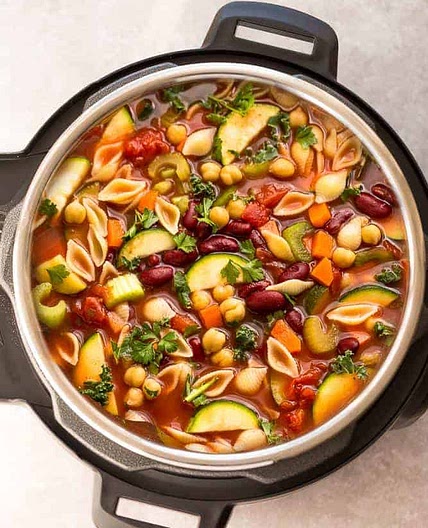







![Spinach, Lentil & Lemon Soup, 34p [VG/V/DF/GF]](https://art.whisk.com/image/upload/fl_progressive,h_264,w_214,c_fill,dpr_2.0/v1641154770/recipe/08173b4f9a5b736834428906994097b2.jpg)



